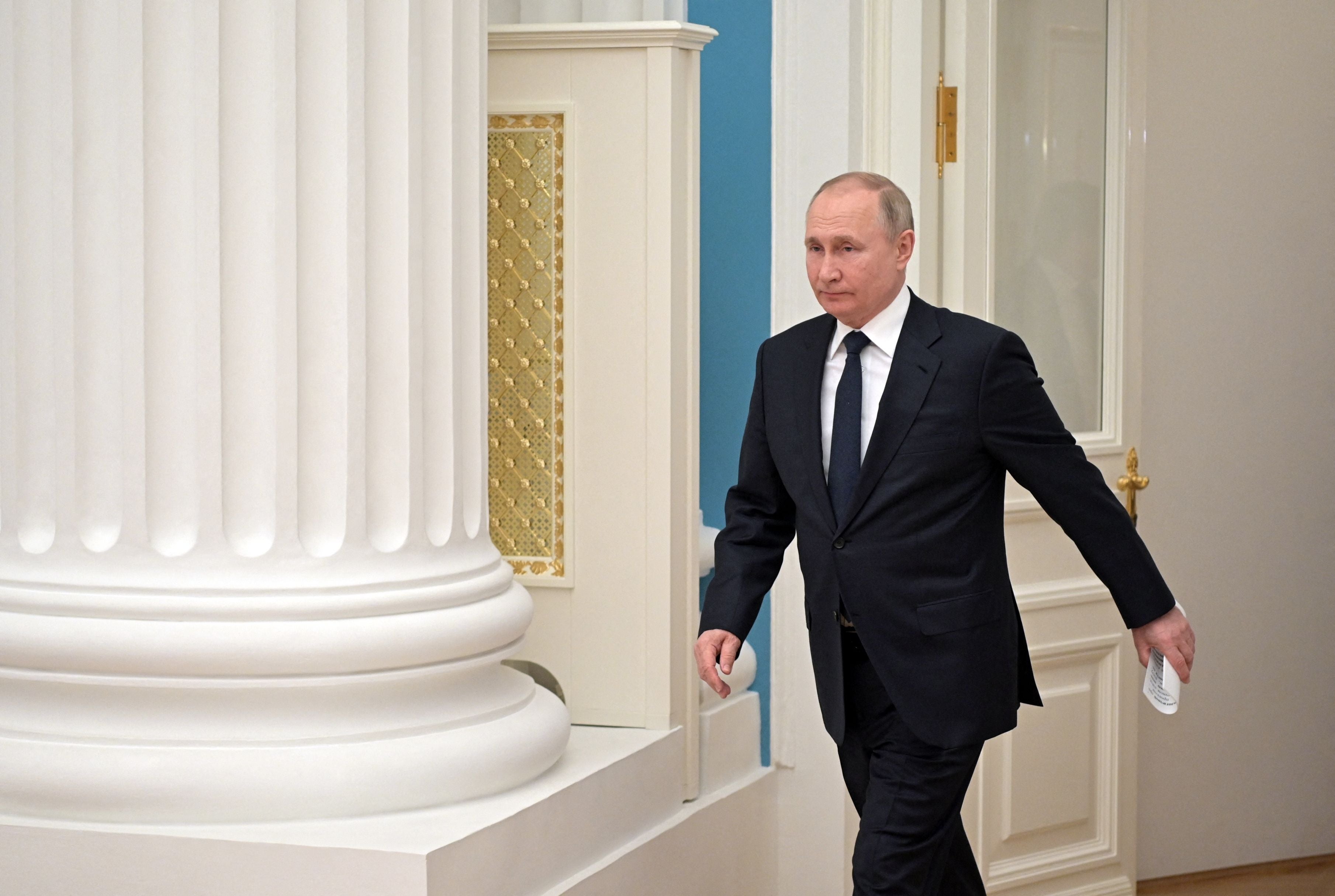Putin’s assault on Ukraine will change London forever. It shouldn’t have taken this long
Intense pressure from activists — and Kremlin belligerence — has improved Britain’s laws in recent years. But the UK runs a hologram anti-money laundering system: it looks real from a distance, yet you can walk right through it

You only have to walk around Mayfair to know how much of the British establishment makes its money. What estate agents like to call “super prime London” has either been purchased or turned into a playground for the kleptocrats of the world — much of them directly enriched or enriching the Kremlin. For decades now, many of London’s most expensive bankers, lawyers, accountants and lobbyists of all shapes and sizes have been turned into a pinstripe army that defends its interests and covers up its wealth.
Vladimir Putin’s assault on Ukraine will change Mayfair forever. The anti-Kremlin package announced by Boris Johnson in the House of Commons yesterday has, as its centrepiece, asset freezes on all major Russian banks. It hits over 100 companies and oligarchs with similar asset freezes, travel bans, and sanctions.
This will rip the heart out of “Londongrad”: legislation to limit the amount of money a Russian citizen can deposit in a UK bank account, to prohibit Russian companies from raising finance on UK markets, and to stop the Kremlin from issuing sovereign debt on the London market will leave it crippled for the rest of Putin’s reign. And if Britain succeeds in pushing Russia out of the SWIFT international payments system, it will be close to finished off completely. But, this is not enough. We need to change London, not just end “Londongrad.”
London became a global corruption services centre because of decades of lax British laws, scant enforcement of the existing ones, and a nod and wink from the establishment itself. A list of the great and the good who have offered their services to kleptocrats at one time or another is half a who’s-who of the elite.
Intense pressure from activists — and Kremlin belligerence — has improved Britain’s laws in recent years. But Britain runs a hologram anti-money laundering system: it looks real from a distance but you can walk right through it, as laws on paper have hardly been backed by enforcement, penalties, or prosecutions. As a result, Transparency International has estimated an excess of £100 billion a year is laundered in the UK — over two and a half times what Westminster spends annually on the defence budget. And the absurdity is much of this money is destabilising fragile states or financing hostile authoritarian regimes.
Britain needs to do more than throw Putin’s cronies out of London. It needs to close down this laundromat. Despite years of action against money laundering in real estate, over £100bn worth of property in England and Wales is anonymously owned. The Kazakh elite, its hands bloodied in a recent Putin-backed crackdown, has over £530bn in property in London alone. This is why it is critical that activists and politicians now press for Boris Johnson to come good on his promises to end “golden visas” and fix this system in the forthcoming Economic Crimes Bill including reforms to Companies House, a register of overseas property ownership, and a new “Kleptocracy Cell” in the National Crime Agency to target sanctions evasion and corrupt Russian assets hidden in the UK. We need a proper system, not just sanctions on Putin himself.
Pressure is needed, because the track record, so far, has been one of foot-dragging and under-resourcing these institutions.
Take the National Crime Agency. This was set up to be a British equivalent of the FBI. Only resourcing it to actually make it one will do. It’s really very simple: why wait for the war crimes to start investigating these kleptocrats with unexplained wealth orders? Britain should consider laws restricting the amount of money politically exposed people from corrupt countries until they can prove the sources of their wealth are clean. Then it should start cleaning house with new legislation to stop funding with malign agendas ending up as funding for UK political parties. Finally, British political life needs to be fire-walled from MPs’ and peers’ “second jobs” for kleptocrats, authoritarians and their state companies and interests — as do former officials and prime ministers.
Unless Britain does this, it will only have the effect of throwing Russian kleptocrats out of London: not those enmeshed with all the other regimes in Eurasia, Africa and the Middle East who use the British financial system and the offshore tax havens that are Britain’s overseas territories and dependencies for their ends, as the Pandora Papers again exposed. But this will mean doing the hard part that the government has not yet shown the appetite for: going not just after the bad guys but their British enablers — the bankers, lawyers and lobbyists who manage their money, hide their wealth, strike down journalists in bogus libel cases and launder their reputations for them. This means not only confronting our — legalised — corruption in Britain with new laws preventing and imposing penalties on abetting authoritarianism and kleptocracy. It means changing the model that this political pivotal chunk of the establishment made its fortunes from since Britain lost its imperial status. That’s the hard part — but it’s what needs to happen if we want London to no longer be a byword for corruption and a laundromat that helps those that want to do harm.
Ben Judah is a Senior Fellow at the Atlantic Council and the author of ‘This Is London’

Join our commenting forum
Join thought-provoking conversations, follow other Independent readers and see their replies